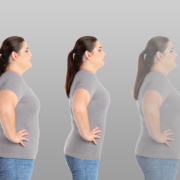It’s All About the Calories!
One of my long-held beliefs is that where weight is concerned, it’s all about the calories—and I’m happy to say that this study reinforces my belief.
But when I’m wrong, I’ll tell you. Case in point: as I continued to examine the CALERIE trial, it became apparent I had made a mistake in the number of subjects and the percentage of caloric restriction. One paper reported 11% caloric restriction over two years, another 15.9%, and a third 14.1%; I referred to that one in Tuesday’s Memo on caloric restriction and immunity. This was a five-year data collection study that began in 2007 and finished in 2012. Different papers covered different time periods, and the data set used was appropriate for the time period examined; there were additions and dropouts until two years before study ended in 2012.
The Purpose of the Study
The primary purpose of the study was to develop a program that would help people maintain a 25% decrease in calories by using technology and a continuous support system. They also had a variety of physiological, psychological, and genetic factors to examine. That’s why data from 15 years ago are still being examined today.
There is one more thing we need to know. This was not a weight loss program; all the subjects were normal weight. They wanted to find the level of caloric restriction that would provide benefits but not cause problems with the immune system, such as the rodent studies found at 40% caloric restriction.
I think they succeeded; 25% caloric restriction was too much in free-living people, but 10% to 15% caloric restriction was doable with no issues in body composition, psychological factors, or several other variables they have reported on such as the decrease in an enzyme that sabotages the immune system as in Tuesday’s Memo.
It’s About the Calories
There were no special diet plans recommended. Subjects were provided support on how to reduce calories along with strategies to use if their interest started to wane over the entire two years. One of the researchers commented when interviewed that perhaps there will be a more effective diet between Mediterranean, keto, or some other way of eating.
No, there won’t.
I’m more convinced than ever: it’s all about the calories. I think people should choose to eat the healthiest foods they can afford so they get the optimal types of fat, phytonutrients, and other factors. But it was, it is, and it will always be about the calories—for weight loss if you’re overweight, for improved health if you’re normal weight, or both.
What are you prepared to do today?
Dr. Chet
Reference: SCIENCE. Feb 2022. 375(6581):671-677









